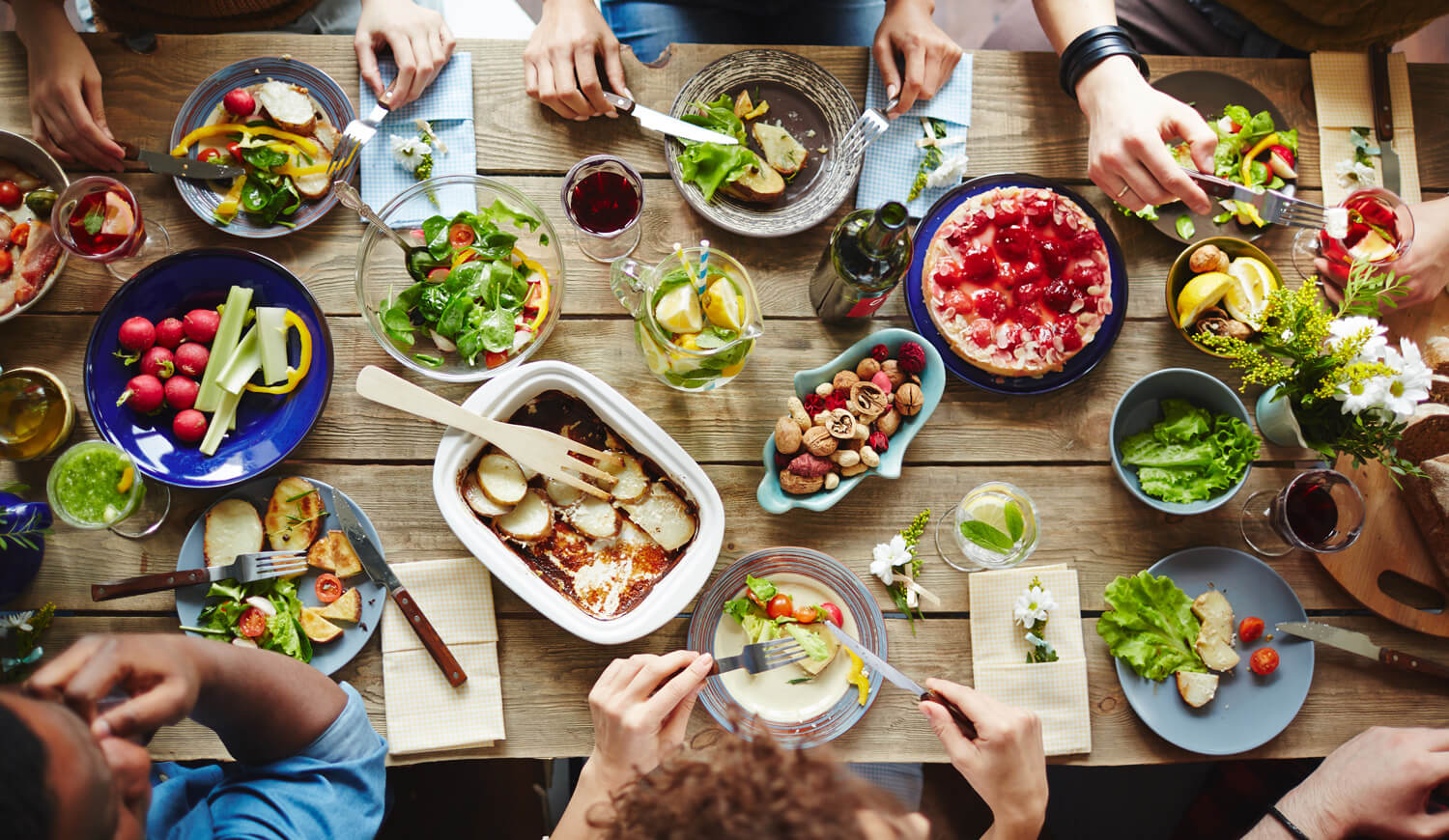Nearly 2,500 years ago, a wise Greek man died in old age. He was at least 80 years old, perhaps even 100. We can’t be sure. But we know that Hippocrates, the father of medicine, thought deeply about health and wellbeing. He advised others to, “Leave your drugs in the chemist’s pot if you can heal the patient with food.” These days, we’re beginning to realise just how profound this guidance might be.
Hippocrates believed that all disease began in the gut. Could he be right? To find out, we need to learn more about microbes, the tiny living things that are all around us. The most common types are bacteria, viruses and fungi. These microbes are too small to be seen by the naked eye, but they’re powerful when they get together. Our bodies contain around 100 trillion of them. Yes, trillion. Some microbes (less than 5%) make us sick, but most are important for keeping us well.
Listen to those gut feelings
Modern techniques are revealing that the microbes in our guts may be as important as Hippocrates suspected. Perhaps deep down we’ve known this all along. All of us have experienced butterflies in our stomach before an important event. We talk about gut reactions and gut feelings. Boxers show gutsy behaviour and sometimes we all have to make a gut-wrenching decision. In our culture, there’s a relationship between the gut and our moods that’s been around long before we had electron microscopes.
The organ you didn’t know you had
Experts call the gang of microbes in our digestive system the ‘gut microbiome’. Many even think of the microbiome as an organ in its own right. That’s partly because it contains as many cells as there are in your own body. It’s also because they’re vital for managing many aspects of your health, including your digestion and immune system. A poor balance of unhealthy and healthy microbes will push you towards gaining weight, high blood sugar, and high cholesterol.
So what can we do to improve our own gut microbiome? I’ve listed some tips below. But keep in mind that this is a new and complicated subject. Much of our knowledge is based on research that was made possible only after the human genome project, which was completed less than twenty years ago.
These new methods allowed scientists to study which microbes we have inside us, and what they do. They began to see that some could be linked to conditions such as obesity, type 2 diabetes, and even neurodegenerative diseases like Parkinson’s. They also learned that we each have a microbiome that’s unique – like a fingerprint. So much more research is needed to understand its role in keeping us healthy.
Tips for eating well
By now you know that eating isn’t just fuel for your own body. It also feeds the trillions of bacteria that live in your gut. Everyone’s microbiome is different, but if you want to improve your digestion, lose body fat, or look after your general health, try these tips:
Increase your range of foods
There are countless species of useful bacteria in your gut microbiome. Each needs different nutrients, so be good to them all by choosing different types of food. Next time you’re shopping, seek out something new you’ve never tried. Try to steer away from the typical modern Western diet, as it leans towards fat and sugar.
Eat lots of vegetables, legumes, beans and fruit
All of these are high in fibre. While you can’t digest it, fibre will stimulate the growth of healthy bacteria in your gut. Foods that are good for this include:
- Artichokes
- Beans (kidney, pinto, white, black and red)
- Broccoli
- Chickpeas
- Green peas
- Lentils
- Raspberries
- Whole grains
Experiment with fermented foods
These foods are altered by microbes before they reach you. Bacteria or yeasts have been used to convert sugars in the food to acids or alcohol. Some exotic-sounding examples include:
- Kefir – a cultured, fermented milk drink
- Kimchi – pickled vegetables
- Kombucha – a fermented, sweetened black or green tea
- Sauerkraut – finely cut raw cabbage
- Tempeh – a source of protein, made from soybeans
Many of these foods are rich in lactobacilli, a ‘good’ type of bacteria. It’s not certain these bacteria reach the gut, but, in countries where these foods are common, people appear to have less bowel disease. Some kinds of yogurt may also help people with irritable bowel syndrome, but stick to plain, natural versions.
Go for whole grains
Whole grains contain lots of fibre and carbs you can’t digest. So they’re not absorbed in the small intestine and instead make their way to the large intestine. Once there, they promote the growth of beneficial bacteria. As a bonus, they also help you to feel fuller for longer.
Seek out polyphenols
These are plant compounds that help reduce blood pressure, inflammation and cholesterol. We absorb them inefficiently, so most end up being digested by our gut bacteria. Good sources include:
- Almonds
- Blueberries
- Broccoli
- Cocoa and dark chocolate
- Grape skins
- Green tea
- Onions
- Red wine
Choose extra-virgin olive oil over other fats if you can, as it contains more polyphenols.
Conclusion
If you thought bacteria were the bad guys, I hope this has made you think again. Along with other microbes, they’re often thought of as sources of disease. But in fact many play an essential role in keeping you healthy. Look after them by choosing a range of fresh, whole foods like fruits, veggies, legumes, beans and whole grains. And treat the little fellows with respect. At 3.5 billion years old, they’re the world’s oldest resident. So they’ve earned it.
Learn more:


